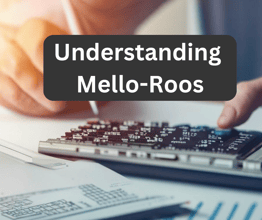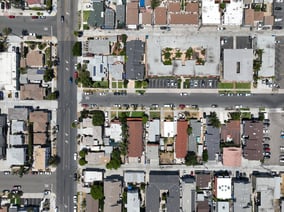5 hidden costs first-time homebuyers often overlook
Purchasing your first home is exciting! You finally get a space you can call your own and craft into your dream home.
And there's no better place to purchase a home than in San Diego. You can surf in Solana Beach, sunbathe in Coronado, and host bonfires in Mission Beach. If you want to get your hike on there are trails from Balboa Park to La Mesa to explore. But, San Diego is also an expensive city to move into. When shopping for a home you'll want to make sure that you keep all costs in mind as you evaluate options. Regardless if you are looking to buy in San Diego or other markets around the country, you will also want to be prepared for the hidden costs that you may not have expected.
There are numerous expenses, beyond the down payment, for which you may not have planned or anticipated. To help you out, here are a few costs you should be aware of before you ger ready to drop a down payment.
1. Inspections and Appraisals
Before you buy a car, what is one of the first things you do? You take it for a drive, right? You kick the tires, take a look under the hood, and pepper the salesperson with a barrage of questions. What you’re doing is inspecting the car and conducting an informal appraisal. Is the car worth this much? Are there hidden maintenance issues that could drive up the costs later?You do the same with a home. Just like hiring a mechanic, a buyer is always encouraged to hire an inspector to go through the house and check it for any potential issues. In San Diego, you want to look for termite damage and mold, and insidious problems that can cost thousands of dollars to remedy. As well as looking into the roof, foundation, electrical, plumbing and other features of the home.
In conjunction with the inspection is an appraisal. While inspections look for problems, appraisals value the home. The purpose of the appraisal is to figure out a range of prices for the fair market value of the home. The appraisal ensures that you are paying a fair price.
Both of these expenses can run a few hundred dollars. But, in some cases, you can also negotiate for the seller to absorb some of the costs.
2. Closing Costs
Closing costs are a catch-all term for the expenses associated with closing on a home. Yes, it sounds ironic, you need to pay more money, to spend your money. Closing costs cover things like title (to make sure seller owns the home), loan origination fees (pay the bank to transfer the mortgage), taxes, entry HOA (homeowners’ association fees), and more. Closing costs can amount to 2 to 5 percent of the sales price.3. Maintenance and Repairs
Once you get the appraisal and inspection, you will have an idea of the things you may need to address once you move in (and possibly negotiate a lower price). However, the reports can only estimate what is likely to come up; it isn’t definite. Once you move, its inevitable, something will break. As the homeowner, you’re on the hook for anything that needs replacement or repair including your A/C unit, locks, painting, and more. If you are accustomed to renting, the cost of these repairs may shock you.4. Taxes and Insurance
Wait, didn’t we cover taxes in the closing costs section? Yes, we did, taxes on the purchase of the home. However, in California, you pay property taxes on the value of the home every year. For new homebuyers, that can amount to thousands or even tens of thousands of dollars annually. You need to make sure that you calculate the property taxes you will owe before buying the home.In addition to taxes, you will need homeowners’ insurance. Some planned communities will provide you with a policy which you are required to buy and others you may need to find your own. Either way, homeowners insurance is crucial to cover any unexpected damage to the home.
5. HOA/Condo Fees
Finally, many new home developemnts are automatically part of an HOA (especially if you’re buying a condo). HOAs allow communities to pool resources for the benefit of the community, like street repair, security, community centers, and more. However, HOA fees, if you don’t pay attention, can cost as much as your mortgage.
HOA fees can vary widely depending on the market that you are in and the amenities that the comunity has to offer. When evaluating a home you will want to make sure you anticipate those additional costs before you buy.
Now that you know some of the additional costs of buying a home, its time to find a real estate agent. Steele San Diego Homes maintains a continual list of available homes. If you need assistance getting a home, please don’t hesitate to give us a call.




